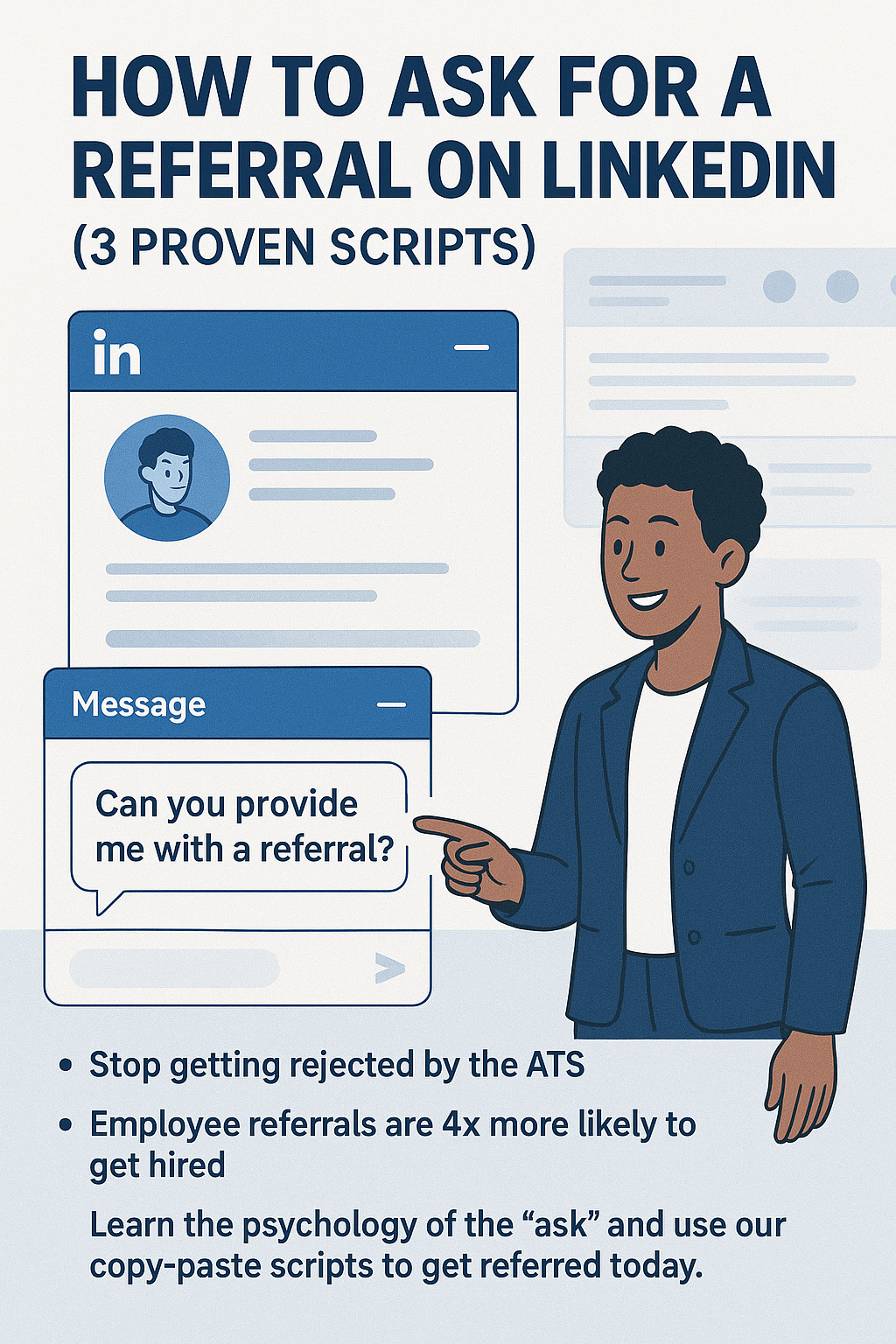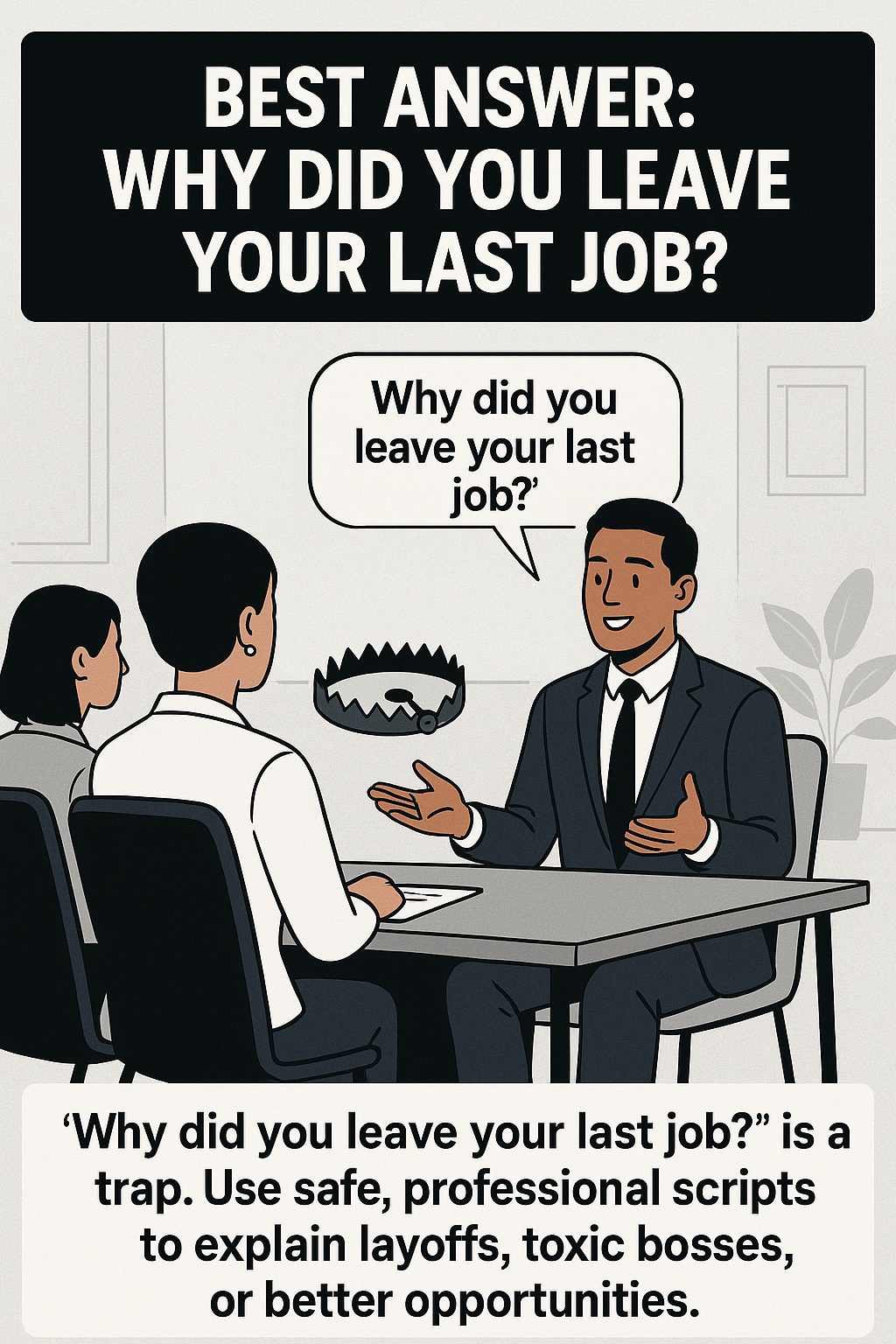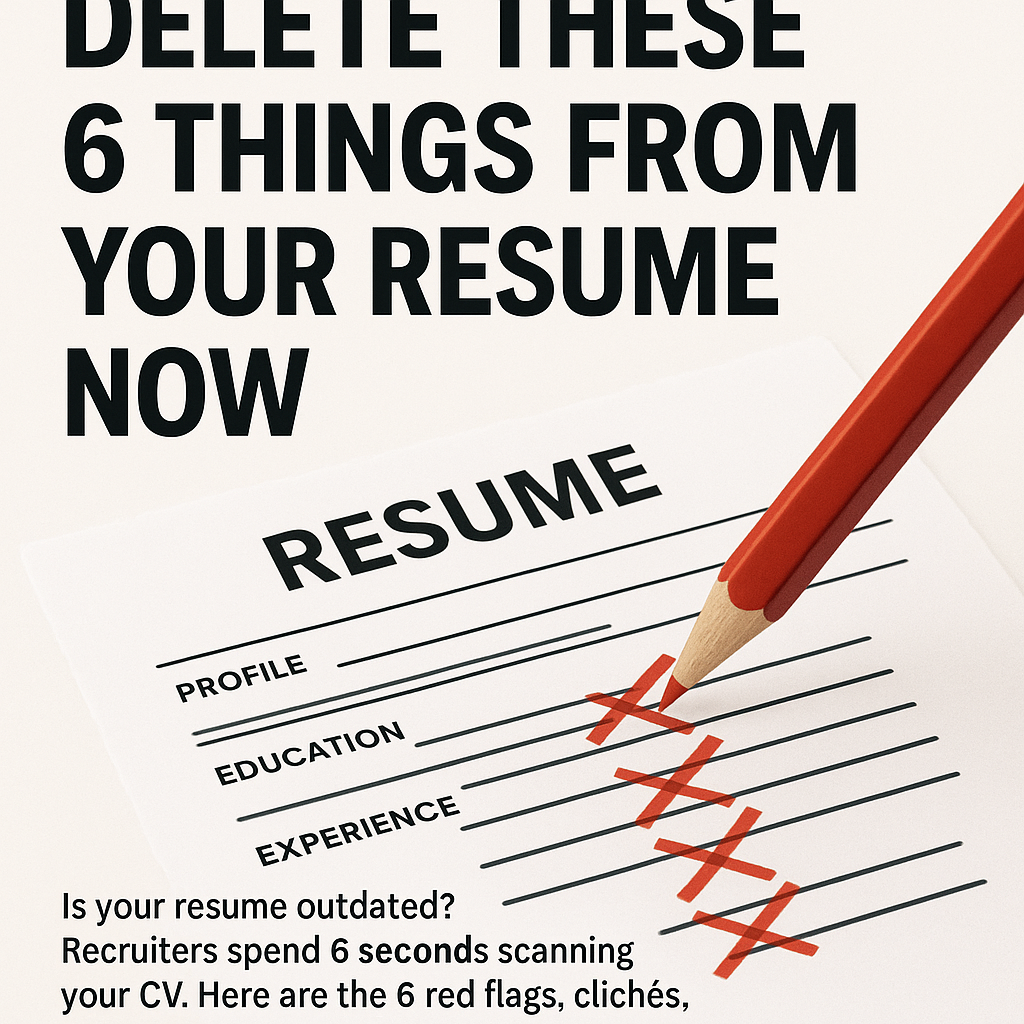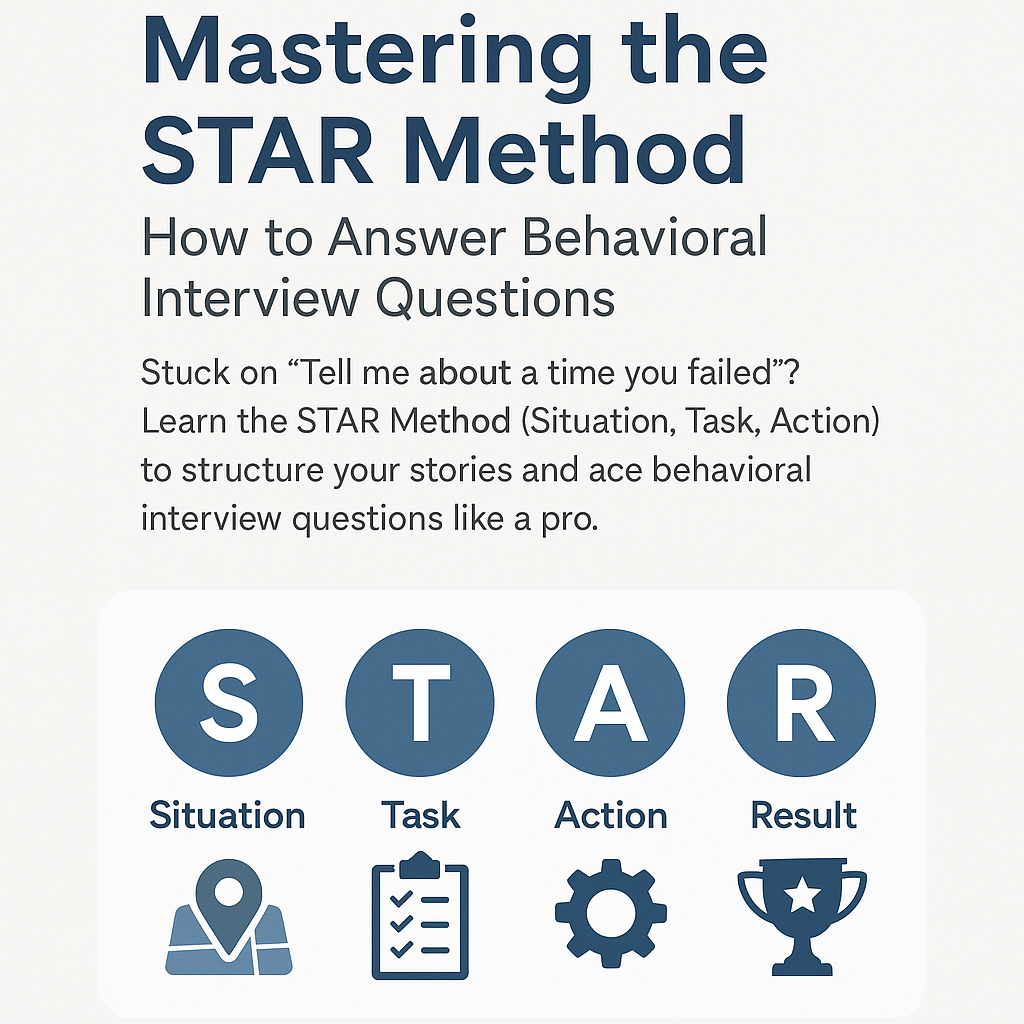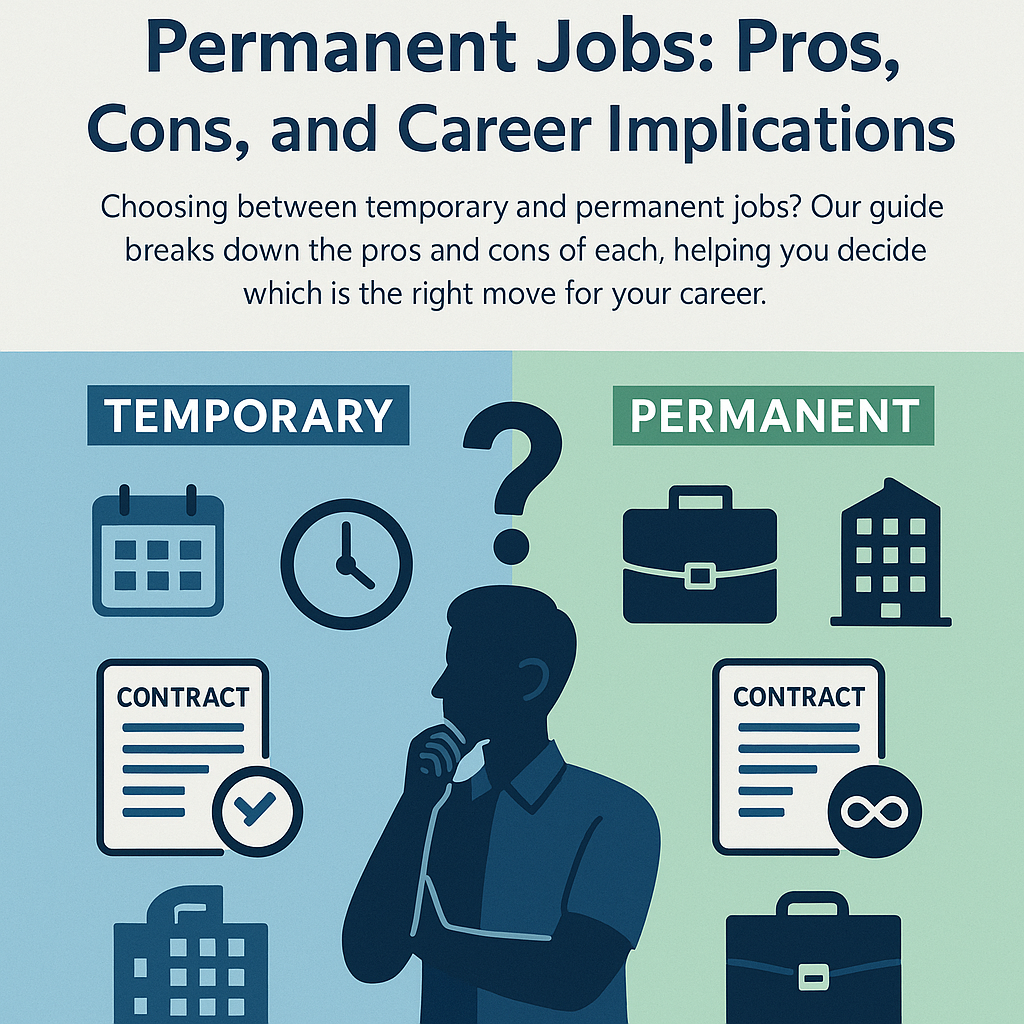
Temporary vs. Permanent Jobs: Pros, Cons, and Career Implications
In the world of work, the path to a successful career is no longer a single, straight line. The modern job market is a dynamic and diverse landscape, offering a wide array of employment arrangements that cater to different lifestyles, goals, and career stages. Gone are the days when the only "real" job was a permanent, lifelong position with a single company. Today, professionals are faced with a spectrum of choices, and one of the most fundamental decisions is choosing between a temporary and a permanent role.
This choice can feel complex and loaded with implications. On one hand, the permanent job stands as a bastion of traditional career values: stability, security, and a clear path for growth. On the other, the temporary or contract job represents the new world of work: flexibility, variety, and the opportunity to gain diverse experience quickly. Both paths offer unique advantages and come with their own set of trade-offs.
Making the right decision depends entirely on your personal circumstances, your risk appetite, and your long-term career aspirations. Is your primary goal to build a stable financial foundation and grow within one organization? Or are you seeking to rapidly expand your skill set, explore different industries, and maintain a high degree of flexibility in your life? There is no universally correct answer.
This guide is designed to provide a clear, balanced, and comprehensive comparison of temporary and permanent employment. We will break down the pros and cons of each, explore the concept of "contract-to-hire" roles, and empower you with the insights you need to make a strategic and informed decision that aligns perfectly with your career journey.
The Case for Permanent Employment: The Fortress of Stability
A permanent, full-time job is the bedrock of the traditional career model, and it continues to be the goal for a vast majority of the workforce for several compelling reasons.
Unparalleled Security and Stability
This is the single greatest advantage of a permanent role. A permanent job comes with a predictable monthly salary, a sense of job security, and a stable work environment. This financial and professional stability is the foundation upon which you can build your life—it allows for long-term financial planning, securing loans for a home or a car, and supporting a family with confidence. In an uncertain economic climate, the psychological comfort of a steady, secure job cannot be overstated.
Comprehensive Benefits and Perks
Permanent employees are a long-term investment for a company, and this is reflected in the comprehensive benefits package they receive. This typically includes health insurance for you and your family, mandatory contributions to your Provident Fund (PF) for retirement savings, paid sick leave, earned vacation days, and statutory benefits like gratuity. These benefits provide a crucial financial safety net that is rarely available to temporary workers.
Clear Path for Career Progression
Permanent roles are designed for growth. Companies invest in their full-time employees through structured training programs, mentorship opportunities, and clear, defined career ladders. You have the opportunity to take on progressively more responsibility, gain deep institutional knowledge, and build a strong internal network. This makes it much easier to get promoted into leadership positions within the organization.
Deep Integration and Team Cohesion
As a permanent employee, you are a core part of the team and the company culture. You build strong, lasting relationships with your colleagues and managers. This sense of belonging, shared purpose, and team camaraderie is a significant contributor to job satisfaction and can make your work life more enjoyable and fulfilling.
The Case for Temporary Employment: The Accelerator of Experience
Temporary or contract-based work has shed its old reputation as being just "temp work." It is now a strategic choice for many highly skilled professionals who value flexibility and rapid skill acquisition over long-term stability.
Unmatched Flexibility and Autonomy
This is the primary allure of temporary work. Contract roles often come with a defined end date, giving you complete control over your career timeline. You can work intensely for a six-month project, and then take a month off to travel or pursue a personal passion. This level of autonomy and control over your own schedule is simply not possible in most permanent roles. It's a model that is perfectly suited for those who want to integrate their work with a dynamic and multi-faceted lifestyle.
Rapid Skill and Experience Acquisition
If your goal is to learn as much as possible as quickly as possible, contract work is an incredible accelerator. By moving between different companies, industries, and projects every six to twelve months, you expose yourself to a huge variety of technologies, work cultures, and business challenges. In a few years, a contractor can build a resume with a breadth and diversity of experience that a permanent employee might take a decade to acquire. This makes you a more agile, adaptable, and versatile professional.
Higher Potential for Hourly Rates
In many skilled fields, such as IT and design, the hourly or daily rate for a contractor is often significantly higher than the pro-rata salary of a permanent employee. This is because the company is not paying for your benefits, paid leave, or retirement contributions. For a disciplined professional who can manage their own finances and secure consistent work, contract roles can be incredibly lucrative.
A Foot in the Door at Top Companies
It can be incredibly difficult to get a permanent job at a top-tier company. These organizations often use temporary contracts to fill immediate needs for specific projects. Taking on a contract role at your dream company is a fantastic, lower-risk way to get your foot in the door, showcase your skills, and build a network within the organization. This leads us to the hybrid model.
The Bridge Between Both Worlds: The "Contract-to-Hire" Role
A "contract-to-hire" position is a role that starts as a temporary contract for a specific period (usually 3-6 months), with the potential to convert into a permanent position at the end of the contract term. This model offers a unique "try before you buy" opportunity for both the employee and the employer.
For the Employee: It allows you to experience the company culture, the team dynamics, and the day-to-day responsibilities of the role before committing to a long-term position. If you discover that it's not the right fit, you can complete your contract and move on without the stigma of a short-term permanent job on your resume.
For the Employer: It allows them to evaluate a candidate's real-world performance, work ethic, and cultural fit before making the significant investment of a permanent hire.
A contract-to-hire role can be the best of both worlds, offering a clear path to a permanent position while still providing a period of mutual evaluation. When considering such a role, it's crucial to ask direct questions about the likelihood of conversion and the specific performance metrics that will be used to make that decision.
How to Choose the Right Path for You
The decision between temporary and permanent work is a strategic one that depends on your current career stage and priorities.
- Choose a Permanent Job if: Your primary goal is stability, financial security, and long-term growth within a single organization. You are the main breadwinner for your family and value a comprehensive benefits package. You are in the early stages of your career and want access to structured training and mentorship.
- Choose a Temporary Job if: You prioritize flexibility, variety, and rapid skill acquisition. You are confident in your ability to manage your own finances and are comfortable with a certain level of income uncertainty. You are looking to make a career change and want to "test drive" a new industry, or you want to get your foot in the door at a highly competitive company.
How to Find These Roles
When you are on a job aggregator like https://jobpe.com, it's essential to use the "Job Type" filter. You can specifically search for "Permanent," "Contract," or "Temporary" roles to tailor your search to your exact needs. Setting up different job alerts for each category is a smart way to monitor the entire job market.
Regardless of the path you choose, your application materials need to be top-notch. A flexible tool like the JobPe Resume Builder can help you create a powerful resume that can be adapted for either a stable, long-term role or a dynamic, project-based one. Be prepared to answer specific interview questions about why you are seeking a particular type of employment.
Conclusion: Designing Your Career, Your Way
The modern world of work offers more choice and flexibility than ever before. The choice between a temporary and a permanent job is not a choice between "good" and "bad," but a strategic decision based on your personal and professional priorities.
By understanding the distinct advantages and trade-offs of each path, you can move beyond traditional career expectations and make a conscious, empowered decision. Whether you choose the stability of the fortress or the dynamism of the open road, the power to design a career that truly fits your life is in your hands.

Creative Content Writer


